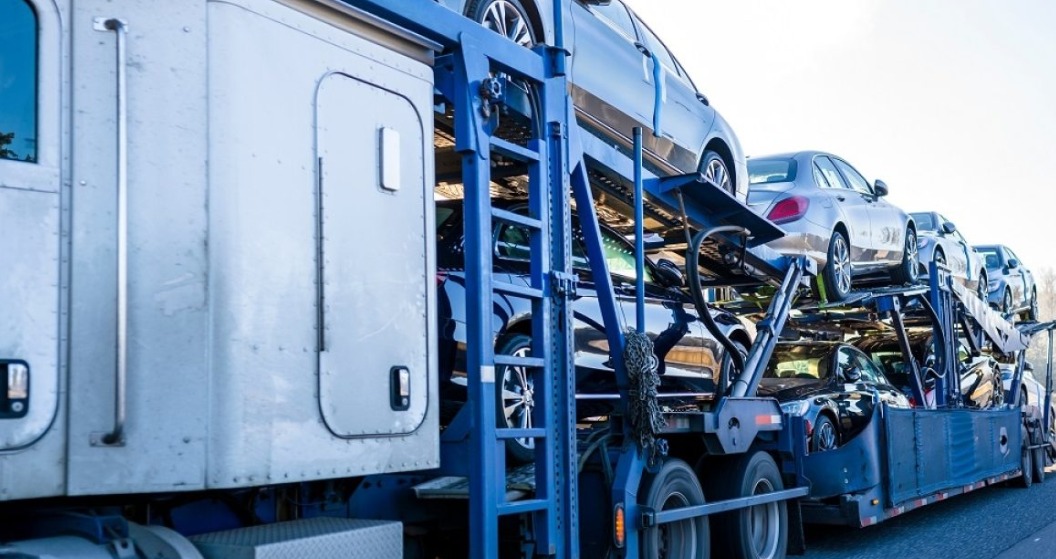What Affects Delivery Time for Car Hauling Companies?

Introduction to Delivery Time in Car Hauling
Delivery time for car hauling companies is shaped by numerous factors that create a dynamic and often intricate process. Understanding these elements is essential whether you’re handling a single car or a whole fleet. Each stage of the delivery process, from initial scheduling to final drop-off, is influenced by a range of variables that can either expedite or delay the journey.
An example would be the logistics of the routes set, weather and regulatory requirements which require detailed planning to prevent breakdowns that could cost some valuable time. Moreover, other factors like the maintenance and real time traffic condition are extremely important in ensuring that transportation is done on time. There exist, also, the special customer demands and some requirements related to delivery, which complicates the process even more.
Considering these factors of influence in isolation, it will be in a position to come up with how the companies can streamline the operations and start with the timely deliveries which eventually lead to customer satisfaction and efficiency of operation.

Distance and Route Planning
Distance and route planning play pivotal roles in determining the efficiency of car deliveries. The further the destination, the longer it usually takes to complete the journey. However, leveraging advanced route optimization tools can substantially cut down on transit time. and advanced mapping software help car hauling corporations locate the most effective routes around congestion, road blockage and other impediments.
Route optimization does not only involve taking shortest route; it involves selecting the routes which can make less use of fuel and reduce the wear and tear of the vehicles. This needs a close observation of the road situation, the toll, and the probable delays. As an example, it is possible to save a lot of time avoiding rush hours in the high traffic areas. Other companies even go as far as changing their routes on a fly to meet real-time traffic to make sure the most smooth trip.
Also, it is essential to be aware of details of the route to have restrooms and gas stations so that the moving could be continuous. The improperly constructed routes also minimize chances of the detours that may delay the delivery period. With the constant improvement of the route planning techniques, the car hauling companies will be able to promote more precise delivery schedules, facilitating the operational productivity and client satisfaction.
Weather Conditions and Their Impact
Weather conditions can drastically affect the delivery times for car hauling companies. Transportation may be delayed because of heavy rain, snow or storms and even may cause the road to be closed. The factors have the capability to upset scheduled time schedules and delivery time durations. On the other hand, mild and favorable weather can facilitate smoother and quicker deliveries.
Most car hauling businesses will be ahead of bad weather since they would have sprung forward with the help of modern weather forecasting models. They enable them to foresee any possible delay and revise their schedules in order to accommodate them. For example, they might change routes to avoid areas experiencing severe weather or reschedule deliveries to avoid the worst of the conditions. Flexibility in scheduling becomes crucial during winter months when snow and ice are more common.
Also, the affected firms can adopt tactics that include making more time to deliver the goods during seasons of poor weather. This cushion period is useful in order to cope with any probable delays that may occur as a result of a change in weather. Some companies may also dedicate purchase on special equipment, such as tyre chains or snow tyres, to have more secure travel in extremely weather circumstances.
It is also necessary to communicate with drivers very well. The continuous updating of the weather conditions will allow the drivers to make informed choices on the road thereby making the process much safer and as close to the original delivery plan.

Regulatory and Compliance Factors
Issues of regulation and adherence to regulations are also very important in the car hauling business and do have implications on delivery times. It is required that state and federal regulations (such as weight limits, permits and inspection procedures) are followed, and some areas may differ region to region. An example is that some states might give certain limitations on the nature of the vehicles that could be used or even the path that could be followed. Compliance checks at borders or checkpoints may also add to the overall travel time, as cars must often undergo inspections to ensure they meet all legal standards.
Preparation is key to minimizing delays associated with regulatory and compliance factors. Car hauling companies must ensure all necessary permits and documentation are in order before embarking on a journey. The transportation process can also be smoothed by being up to date with the changes in the regulations and keeping the compliance management system effective. Besides, it is also recommended to invest in trainings of drivers and personnel meaning everyone should be aware of the latest rules, which will minimize the presence of any violations and delays. Efficiency during car hauling operations can greatly be improved by planning well ahead and a good mastery of the regulation.
Vehicle Maintenance and Reliability
Routine vehicle maintenance is essential to prevent unexpected breakdowns that can cause delays in car hauling. The companies ensure that regular inspection and services are carried out to ascertain that all the parts are operating normally. These are checking of the engine, brakes, tyres and other essential parts. By preventing the small problems, the companies can prevent the major mechanical failures that might ruin the plans.
Establishment of a proactive maintenance strategy is an instrument with the assistance of which it is possible to detect possible problems in advance thus eliminating the risks of possible on-road failures. Vehicles in a fleet are normally well documented in terms of showing maintenance done on them and thus tracking of the vehicles performance and condition can easily be monitored through the records that show the activities done on them. Such well-organized approach helps to plan in time repairs and replacements.
Feedback of drivers also plays a critical role in keeping vehicles reliable. Drivers are often the first to notice any irregularities and their input can lead to quicker diagnostics and repairs. Additionally, investing in high-quality parts and lubricants can enhance vehicle performance and longevity.
Incorporating technology such as telematics systems allows companies to monitor vehicle health in real time. These systems give warnings of any abnormalities and this can be corrected in time. With the consistency of the fleet, car-hauling firms will then have a smoother operation and fulfill their delivery promises.

Traffic and Road Conditions
Another major challenge is caused by traffic jams and the nature of the roads, which may alter the schedules of delivery of car hauling firms. Ample traffic, particularly in urban regions at rush moments, may lead to sluggishness in transport and languishing. The construction sites and road blockage also make it hard to travel the area as one has to take a detour, which adds to the time of journey. In order to overcome these challenges, most companies use traffic control tools, which constantly update the current situation in the road.
Such systems can assist the motorists in making good decisions and dynamic re-routing to avoid congestion and roadblocks. The use of the technologies will make it possible to minimize the delays and make the delivery regular. Communication with the drivers may be overwhelmingly significant, since the information on the situation must be delivered on time to enable the corresponding operative re-routing. By proactively managing these variables, car hauling companies can better adhere to their delivery commitments and ensure a smoother transportation process.
Customer Requirements and Special Requests
The car driving companies tend to require certain customer demands and special requests and they may greatly affect the delivery periods. These demands can range from setting precise delivery windows to requiring specific drop-off locations that might be off the beaten path. Accommodating such requests requires a high level of flexibility and accurate planning. Companies frequently coordinate closely with clients to understand their needs and tailor their services accordingly.
An enclosed type of transport which provides the additional protection to the vehicles can be a frequent requirement, but it can imply additional logistical needs. Another common request is rapid delivery, which might also require changes in the route calculation and sometimes the assignment of special resources (to allow faster delivery time). It may also happen that some customers want to be updated on the status of their vehicle regularly, and the companies have to introduce the system of reliable tracking and interaction with the customers.
Further special handling notes that require some ordering of vehicles so that they are not exposed to the elements or some covering of the vehicle may also introduce various complications in the process of transportation. These particular needs are a lot of pre-planning and making things work in real-time, thus making everything go well.
Coordination is essential not only to fulfill the needs of the customers within the company but also with its partners, including is local governments or other service providers as well. Proper modes of communication mechanisms are necessary to deliver any change or update in good time. Through flexibility and appetency to special demands, car hauling corporations can go beyond meeting the expectations of their customers; they can develop additional and permanent associations with their clientele.
Conclusion
Successfully managing delivery time in the car hauling industry involves a multifaceted approach. Factors such as distance and route planning, weather conditions, regulatory requirements, vehicle maintenance, and traffic significantly affect the timelines. In addition to that, customer specific requests make the entire business more challenging since they will require extensive planning and adjustment.
Businesses must have the capacity to adapt on real time basis by applying latest technics like the telematics, weather prediction and GPS orientation, that would put the businesses in advantage of going around this kind of challenges. One needs to understand how to facilitate good communication and coordination both internally and between clients to fulfill delivery expectations. Through implementation of continuous improvements in their operations and strategies, auto transport companies are able to attain higher levels of efficiency, reduce/minimize delays and also improve customer satisfaction.


